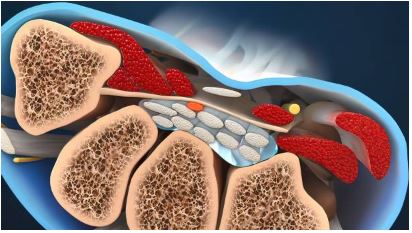
Periodontal scaling and root planing is a standard dental procedure used to treat gum disease and maintain oral health. It involves removing plaque, tartar, and bacteria from the surfaces of teeth and below the gum line and smoothing out the surface of the root of the tooth.
This procedure can help prevent and stop the progression of gum disease and can improve the overall health of your teeth and gums. It is essential to be aware of the risks and benefits of periodontal scaling and root planing and the steps involved in the procedure.
With the correct information and care, you can maintain a healthy and strong smile for a lifetime.
Periodontal scaling and root planing is a procedure known as deep cleaning in dentistry. It helps remove hardened tartar around your teeth and gum line, giving it a polished look and fresher feel.
Gum disease is an infection of the gums caused by bacteria in your mouth. Bacteria in your mouth can produce substances that can irritate your gums and lead to the formation of pockets around your teeth.
If these pockets become infected, it is considered gum disease. Gum disease can lead to tooth loss if not treated. Periodontal scaling and root planing can help prevent and stop the progression of gum disease and can improve the overall health of your teeth and gums.
Periodontal scaling and root planing can help keep your gums healthy and strong by preventing gum infection. It can also reduce your risk of tooth loss by removing plaque and tartar, which can lead to gum disease.
Periodontal scaling and root planing can also help you maintain strong teeth that are less sensitive to hot and cold foods and beverages. It can also improve the look of your teeth by removing tartar buildup, which can discolor them.
As with any dental procedure, periodontal scaling and root planing have some risks. The most common risks include infection, bleeding, tooth damage, and tooth sensitivity.
Infection is a possible side effect following any dental procedure and can be treated with antibiotics. Bleeding is a common side effect following a dental procedure and can be controlled with medication. Damage to surrounding tissues, including the nerves in your teeth, and tooth sensitivity are uncommon risks.
During the procedure, your dentist will first administer a local anesthetic to numb the area around your teeth, including your gums. Once the area is numb, your dentist will scrape off the tartar, plaque, and bacteria from the surfaces of your teeth and below the gum line using special instruments.
Your dentist may also use rubber cups to scrape your gum line gently. Once your teeth and gums have been thoroughly cleaned and scraped, your dentist will smooth out the surface of your teeth by polishing the roots with special tools.
This can be done by hand or with the help of a rotating or oscillating tool. Once the procedure is complete, your dentist will apply a dressing to the area around your teeth to protect your gums and stop any bleeding that may have occurred following the procedure.
Post-procedure, you may experience some bleeding and swelling in the treated area. You may also experience some sensitivity when eating hot or cold foods and beverages for a few days after the procedure. You may apply an ice pack to the treated area to reduce swelling.
Consider taking ibuprofen or acetaminophen to reduce any swelling and pain. Your dentist will likely recommend brushing your teeth with a soft-bristled brush and flossing regularly to remove plaque and bacteria from your teeth and gums.
It would help if you also used mouthwash daily to kill bacteria in your mouth. Consider using a dental device, such as a water flosser, to clean your teeth. This is especially important if you have had gum recession, where the gum line is higher than the tooth surface level.
Immediately following the procedure, you should avoid eating hard or sticky foods, as you may experience discomfort in the treated area. You should also avoid smoking or drinking through a straw, as these can irritate your gums.
Brush your teeth with a soft-bristled brush and floss daily. In addition, you should consider using mouthwash daily to kill bacteria in your mouth. To clean your teeth, you should also consider using a dental device, such as a water flosser.
Periodontal scaling and root planing can help keep your gums healthy and strong by preventing gum infection. It can also reduce your risk of tooth loss by removing plaque and tartar, which can lead to gum disease.
Periodontal scaling and root planing can also help you maintain strong teeth that are less sensitive to hot and cold foods and beverages. It can also improve the look of your teeth by removing tartar buildup, which can discolor them. With the correct information and care, you can maintain a healthy and strong smile for a lifetime.
You'll want to make an appointment with your dentist as soon as possible. This is because your dentist can determine any dental problem inside your mouth and how to fix them.
You can learn more about our services here, and don't hesitate to visit us at 4010 Park Rd., Charlotte, NC.
Make an appointment with Charlotte Emergency Dental today by clicking this link or contacting us at (704)-525-3939.
At Charlotte Emergency, we prioritize first-rate treatment and healthy, beautiful smiles for all our patients. In addition to emergency treatment, we provide a vast array of dental procedures.
If you have a busy schedule but still want to take care of your oral health, our extended hours and same-day services are the easiest way to do so.
Periodontal scaling and root planing is a standard dental procedure used to treat gum disease and maintain oral health. It involves removing plaque, tartar, and bacteria from the surfaces of teeth and below the gum line and smoothing out the surface of the root of the tooth.
This procedure can help prevent and stop the progression of gum disease and can improve the overall health of your teeth and gums. It is essential to be aware of the risks and benefits of periodontal scaling and root planing and the steps involved in the procedure.
With the correct information and care, you can maintain a healthy and strong smile for a lifetime.
Periodontal scaling and root planing is a procedure known as deep cleaning in dentistry. It helps remove hardened tartar around your teeth and gum line, giving it a polished look and fresher feel.
Gum disease is an infection of the gums caused by bacteria in your mouth. Bacteria in your mouth can produce substances that can irritate your gums and lead to the formation of pockets around your teeth.
If these pockets become infected, it is considered gum disease. Gum disease can lead to tooth loss if not treated. Periodontal scaling and root planing can help prevent and stop the progression of gum disease and can improve the overall health of your teeth and gums.
Periodontal scaling and root planing can help keep your gums healthy and strong by preventing gum infection. It can also reduce your risk of tooth loss by removing plaque and tartar, which can lead to gum disease.
Periodontal scaling and root planing can also help you maintain strong teeth that are less sensitive to hot and cold foods and beverages. It can also improve the look of your teeth by removing tartar buildup, which can discolor them.
As with any dental procedure, periodontal scaling and root planing have some risks. The most common risks include infection, bleeding, tooth damage, and tooth sensitivity.
Infection is a possible side effect following any dental procedure and can be treated with antibiotics. Bleeding is a common side effect following a dental procedure and can be controlled with medication. Damage to surrounding tissues, including the nerves in your teeth, and tooth sensitivity are uncommon risks.
During the procedure, your dentist will first administer a local anesthetic to numb the area around your teeth, including your gums. Once the area is numb, your dentist will scrape off the tartar, plaque, and bacteria from the surfaces of your teeth and below the gum line using special instruments.
Your dentist may also use rubber cups to scrape your gum line gently. Once your teeth and gums have been thoroughly cleaned and scraped, your dentist will smooth out the surface of your teeth by polishing the roots with special tools.
This can be done by hand or with the help of a rotating or oscillating tool. Once the procedure is complete, your dentist will apply a dressing to the area around your teeth to protect your gums and stop any bleeding that may have occurred following the procedure.
Post-procedure, you may experience some bleeding and swelling in the treated area. You may also experience some sensitivity when eating hot or cold foods and beverages for a few days after the procedure. You may apply an ice pack to the treated area to reduce swelling.
Consider taking ibuprofen or acetaminophen to reduce any swelling and pain. Your dentist will likely recommend brushing your teeth with a soft-bristled brush and flossing regularly to remove plaque and bacteria from your teeth and gums.
It would help if you also used mouthwash daily to kill bacteria in your mouth. Consider using a dental device, such as a water flosser, to clean your teeth. This is especially important if you have had gum recession, where the gum line is higher than the tooth surface level.
Immediately following the procedure, you should avoid eating hard or sticky foods, as you may experience discomfort in the treated area. You should also avoid smoking or drinking through a straw, as these can irritate your gums.
Brush your teeth with a soft-bristled brush and floss daily. In addition, you should consider using mouthwash daily to kill bacteria in your mouth. To clean your teeth, you should also consider using a dental device, such as a water flosser.
Periodontal scaling and root planing can help keep your gums healthy and strong by preventing gum infection. It can also reduce your risk of tooth loss by removing plaque and tartar, which can lead to gum disease.
Periodontal scaling and root planing can also help you maintain strong teeth that are less sensitive to hot and cold foods and beverages. It can also improve the look of your teeth by removing tartar buildup, which can discolor them. With the correct information and care, you can maintain a healthy and strong smile for a lifetime.
You'll want to make an appointment with your dentist as soon as possible. This is because your dentist can determine any dental problem inside your mouth and how to fix them.
You can learn more about our services here, and don't hesitate to visit us at 4010 Park Rd., Charlotte, NC.
Make an appointment with Charlotte Emergency Dental today by clicking this link or contacting us at (704)-525-3939.
At Charlotte Emergency, we prioritize first-rate treatment and healthy, beautiful smiles for all our patients. In addition to emergency treatment, we provide a vast array of dental procedures.
If you have a busy schedule but still want to take care of your oral health, our extended hours and same-day services are the easiest way to do so.

We have temporarily updated our hours, reflected below.
MONDAY to FRIDAY
9:00am – 7:00pm
SATURDAY to SUNDAY
9:00am – 3:00pm
Save time, print online! Fill out forms online before your first visit to shorten your appointment time with us.